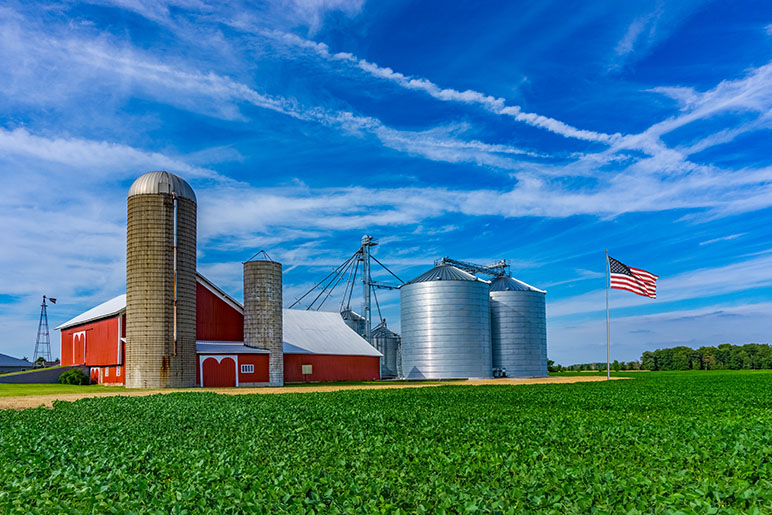
Farming is one of the oldest and noblest professions, but it is also one of the most dangerous. According to the Purdue University Agricultural Safety and Health Program, approximately one in nine Indiana farms has a farm-work-related injury that requires medical attention each year. With all the duties that go with running a farm, it can be easy to forget about hazards that can cause accidents, injuries or even death. National Farm Safety and Health Week is a great opportunity to focus on farm safety, help reduce accidents and keep you, your family and employees safe and productive.
8 safety tips to follow on your farm
These helpful tips offer guidance on how to safely operate your farm.
1. Review and inspect your farm for hazards and dangers.
2. Inspect your tractors and ensure visibility on rural roadways
3. Always wear proper attire when working on the farm.
4. Be mindful when children are present on the farm.
5. Never enter a grain bin alone.
6. Be careful around large animals. Their size can make them potentially dangerous to children and adults.
7. Be prepared for emergencies.
8. Keep yourself safe. The most crucial step to farm safety is to keep yourself safe.
Indiana Farm Bureau Insurance supports National Farm Safety and Health Week and believes farm safety is important for all types and sizes of farms across Indiana. Indiana Farm Bureau Insurance understands the importance of farm safety; your farm and its safety are important to us. We will partner with you to provide education, resources and expertise to identify and reduce farm hazards. You can also receive guidance on how to improve overall farm safety and risk management. Please contact your local Indiana Farm Bureau Insurance agent to learn more.
Risks are still present even if you practice farm safety. To help address these risks, our farm and crop insurance is a great tool to help protect your farm, family and livelihood. Indiana Farm Bureau Insurance has farm insurance options that can provide coverage for your liability, farm structures, home, livestock, machinery and farm vehicles. Along with providing coverage for your property, our crop insurance can provide protection for your farm’s income against the effects of crop loss. Our crop insurance policies can assist in covering most losses due to hail, fire, lightning, vandalism and some transporting accidents.
For more information regarding farm and crop insurance, contact a local Indiana Farm Bureau Insurance agent today. They can help answer any questions you may have about the types of coverage you need and how much coverage you should consider to protect your property and crops. Start ensuring that your farm and crops are covered from the unexpected today, by getting a free quote.
Inside Story is for educational and informational purposes only. Inside Story is compiled from various sources, which may or may not be affiliated with our family of companies, and may include the assistance of artificial intelligence. While we strive to provide accurate and reliable content, we make no warranties or guarantees about its completeness, accuracy, or reliability, and are not responsible for the content of any third-party sources or websites referenced herein. The inclusion of any content does not establish a business relationship or constitute our endorsement, approval, or recommendation of any third party. Testimonials and examples provided are for illustrative purposes only and do not guarantee future or similar results or outcomes, and may not consider individual circumstances, goals, needs, or objectives. Inside Story does not provide legal, tax, or accounting advice. For individual guidance, please consult a qualified professional in the appropriate field.
Coverages subject to policy terms, conditions, and exclusions. Subject to underwriting review and approval.